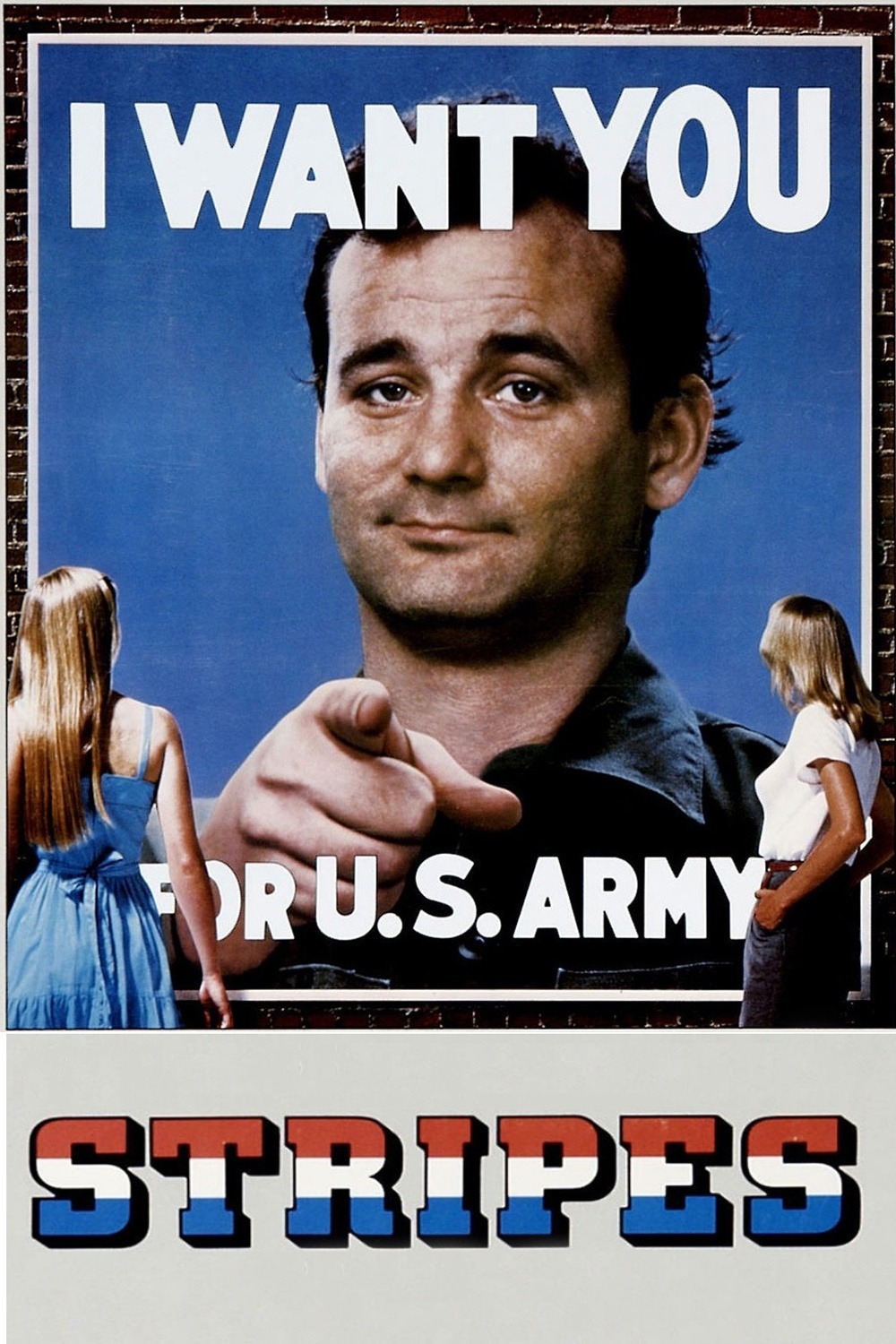“Stripes” is an anarchic slob movie, a celebration of all
that is irreverent, reckless, foolhardy, undisciplined, and occasionally
scatological. It’s a lot of fun. It comes from some of the same people involved
in “National Lampoon’s Animal House,” and could have been titled National
Lampoon’s Animal Army with little loss of accuracy. As a comedy about a couple
of misfits who find themselves in the U.S. Army’s basic training program, it
obviously resembles Goldie Hawn’s “Private Benjamin.” But it doesn’t duplicate
that wonderful movie; they could play on the same double feature. “Stripes” has
the added advantage of being a whole movie about the Army, rather than half a
movie (“Private Benjamin” got sidetracked with Hawn’s love affair).
The movie is not only a triumph for its stars
(Bill Murray and Harold Ramis) and its director (Ivan Reitman), but a sort of
vindication. To explain: Reitman directed, and Murray starred in, the enormously
successful “Meatballs,” which was an entertaining enough comedy but awfully
ragged. No wonder. It was shot on a shoestring with Canadian tax-shelter money.
What Murray and Reitman prove this time is that, given a decent budget, they
can do superior work–certainly superior to “Meatballs,” for starters. For
Harold Ramis, who plays Murray’s grave-eyed, flat-voiced, terminally detached
partner in “Stripes,” this is a chance, at last, to come out from behind the
camera. Ramis and Murray are both former Second City actors, but in Hollywood,
Ramis has been typecast as a writer (“Animal House,” “Meatballs,” “Caddyshack”),
maybe because he sometimes looks too goofy for Hollywood’s unimaginative
tastes.
In “Stripes,” Murray and Ramis make a wonderful
team. Their big strength is restraint. Given the tendency of movies like this
to degenerate into undisciplined slapstick, they wisely choose to play their
characters as understated, laid-back anarchists. Murray enlists in the Army in
a what-the-hell mood after his girlfriend throws him out, and Ramis enlists
because one stupid gesture deserves another. They’re older than the usual Army
recruit, less easily impressed with gung-ho propaganda, and quietly amazed at
their drill instructor, Sergeant Hulka, who is played by Warren Oates with
tough-as-nails insanity.
The movie has especially good writing in several
scenes. My favorite comes near the beginning, during a session when recruits in
the new platoon get to know one another. One obviously psycho draftee, who
looks like Robert De Niro, quietly announces that if his fellow soldiers touch
him, touch his stuff, or interfere in any way with his person or his privacy,
he will quite simply be forced to kill them. Sergeant Hulka replies:
“Lighten up!” The movie’s plot follows basic training, more or less,
during its first hour. Then a romance enters. Murray and Ramis meet a couple of
cute young military policewomen (P.J. Soles and Sean Young), and they happily
violate every rule in the book. One funny scene: Murray and Soles sneak into the
kitchen of the base commander’s house and do unprecedented things with kitchen
utensils.
It’s an unwritten law of these movies that the
last half hour has to involve some kind of spectacular development. In “Animal
House,” it was the homecoming parade. In “Stripes,” the climax involves the
Army’s latest secret weapon, which is a computerized, armored, nuclear weapons
carrier disguised as a recreational vehicle. Murray’s platoon is assigned to go
to Europe and test it. Murray, Ramis, and their girls decide to test it during
a weekend holiday swing through the Alps. After they cross the Iron Curtain,
all hell breaks loose.
“Stripes” is a complete success on its intended
level–it’s great, irreverent entertainment–but it was successful, too, as a
breakthrough for Ramis, Reitman, and Murray, on their way to “Ghostbusters.”
Comedy is one of the hardest film genres to work in. Nobody knows all its
secrets, not even Woody Allen and Mel Brooks. Here’s a comedy from people who
know some of the secrets most of the time.



















